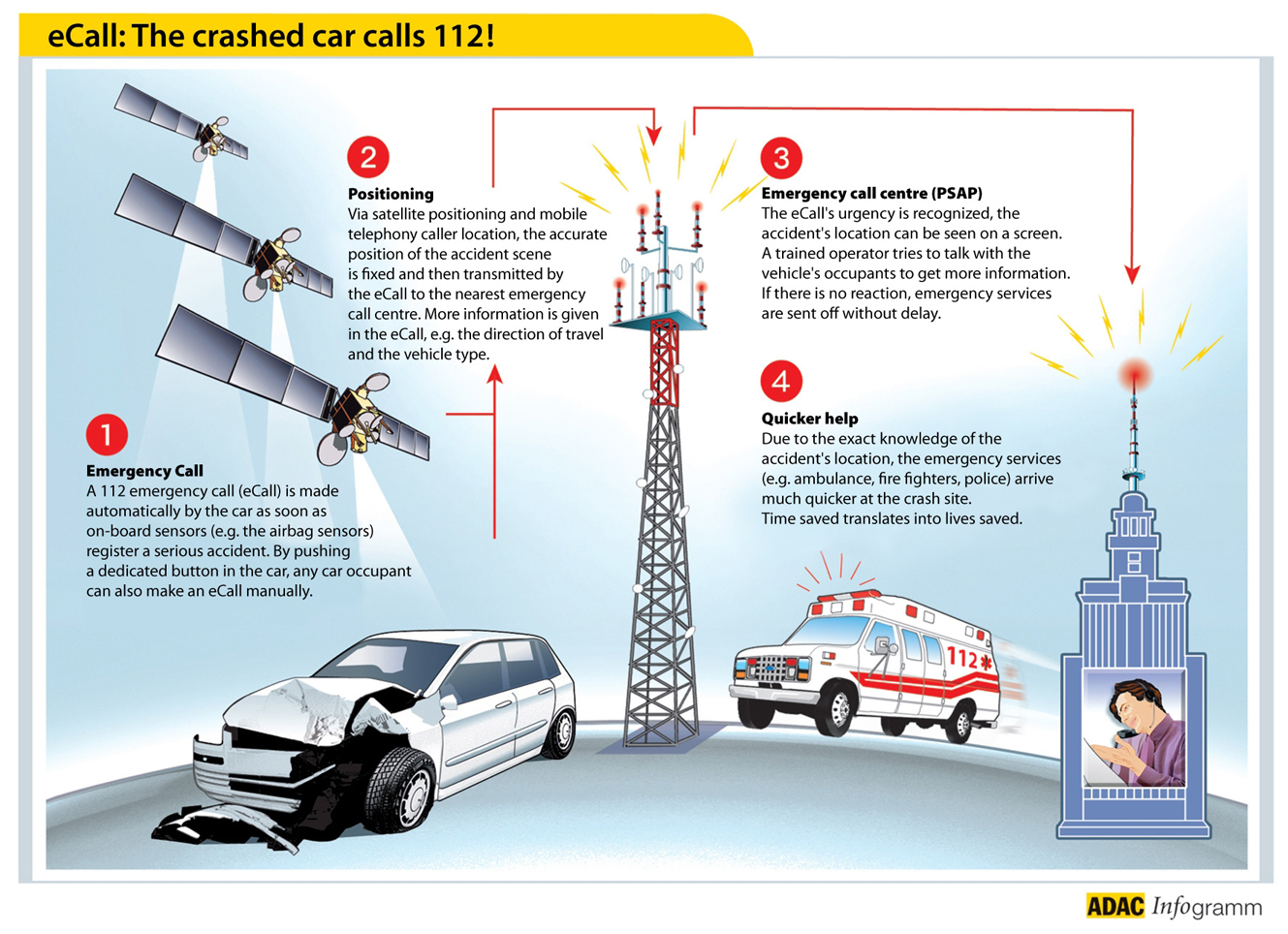Despite EC assurances, unease about eCall system exists
 Eye in the sky – eCall will automatically give emergency services a crashed car’s position
Eye in the sky – eCall will automatically give emergency services a crashed car’s position
The European Commission says reports that UK motorists will be monitored by ‘black box’ technology are “not true”, however although draft legislation for the eCall system has been approved, the commission may find convincing motorists of its purpose harder than it thinks.
Concern surrounds draft EC legislation that will see all new passenger car and light commercial vehicle models (types M1 and N1) fitted with the eCall system as mandatory in Europe from October 2015. The eCall system is designed to automatically telephone emergency services and report a vehicle’s location in the event of a serious crash. Following negative reportage by various media outlets, European Commission spokeswoman for transport Helen Kearns released a text outlining what eCall does, and what it doesn’t do. Kearns writes that eCall is not a black box, rather a device fitted with a dormant SIM-card that is only activated in the case of a serious accident. It doesn’t constantly record a vehicle’s position, she adds.
Despite such assurance, an element of mistrust exists amongst the motoring public. In an article published 18 May that discusses the use of telematics by insurers to determine premiums and suggests drivers will “face inflated premiums” or “even be forced off the road” within ten years if they don’t allow their driving to be monitored by tracking technology, the Daily Telegraph’s Jessica Winch writes that “the technology will soon be fitted in new cars as standard. Under EU regulations, all new cars will need black box-style technology, known as eCall, from October 2015, to help emergency services find crashed vehicles.”
The result of such associations with intrusive vehicle tracking is that suspicions cling to a technology designed to save lives, and perhaps the European Commission needs to provide assurance that eCall won’t become an opportunity for privacy to be compromised. An example of public opinion on telematics was given by Motorpoint this week when it released the results of its online survey on the subject. Motorpoint says that from the almost 2,000 respondents who gave their opinion, 71.5 per cent expressed their opposition to the regulations scheduled to take effect in October 2015. Motorpoint’s public relations manager Steve Wright states the poll shows that “the overwhelming majority of motorists want to shelve EU plans to introduce so-called ‘spy boxes’ in cars.” He further writes (albeit contrary to Helen Kearns’ information) that the legislated technology will monitor individual driving habits. Motorpoint managing director Mark Carpenter is also quoted as saying “you can’t argue with the benefits of a device being used to make it easier for the emergency services to track a vehicle but the results of our poll are definitive – UK drivers don’t want costly Big Brother style devices attached to their cars which have the potential to track their movements 24/7.”
So will eCall legislation make it easier to track motorists? Yes, as the European Commission will allow vehicle owners to opt for a third-party system rather than the standard eCall unit; systems that function in tandem with telematics services offered by third-party providers will be legal so long as the eCall function is automatically triggered in the event of an accident. The EC reiterates that extra third-party services can only be provided with the vehicle owner’s written consent. Yet this freedom to choose third-party systems does leave the door open for insurers to pressure motorists into accepting ‘value-added’ telematics services in order to maintain insurance coverage; the European Commission’s draft legislation does not explicitly forbid this practice.



Comments